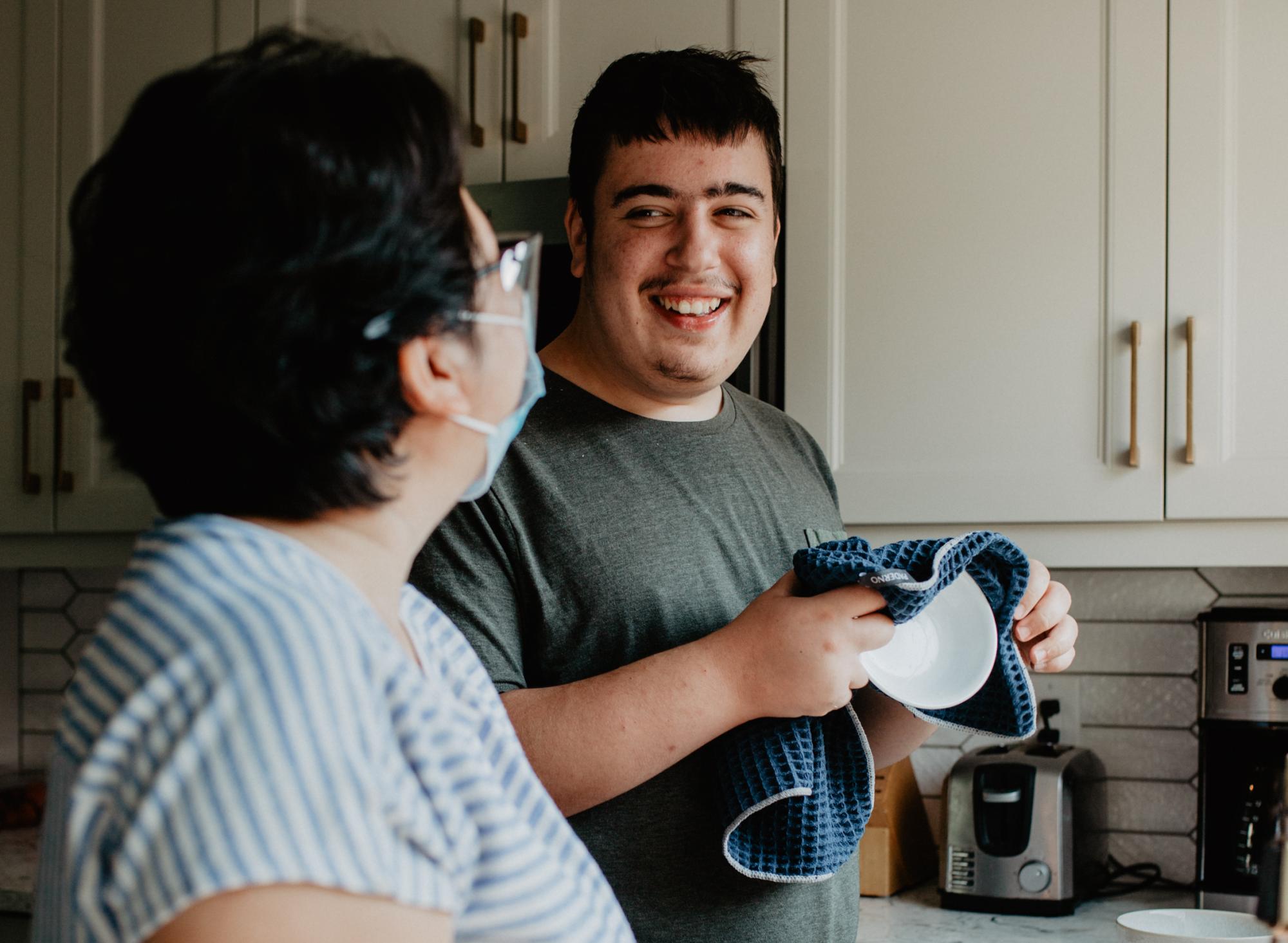Learning about new cuisines and Cantonese: Wai Han and Eric
We’re all social creatures. Meeting new people can sometimes be nerve-wracking, but when you make a genuine connection—you might be surprised at how much you can learn from getting to know someone new.
Wai Han has been a Direct Support Professional (DSP) since 2008, and it’s offered her the chance to meet plenty of interesting people from all walks of life. She works in home settings, supporting people living with disabilities in the places they live and building relationships with them and their families. Every family is unique, so when Wai enters their home to offer support, she learns about their interests, traditions, and of course—their food.
“Every family makes their sandwiches a little bit differently,” Wai laughs. “I have to get to know them and what they like. I’ve learned new cuisines—some families are vegetarian, and some love their protein. I’ve gotten better at cooking for different people.”
After 14 years of providing support for many different people and their families, Wai has built plenty of new connections. There’s something special about being matched with someone and walking alongside them in their everyday life, finding a way to fit seamlessly into their routine.
Eric is a young high school student who hasn’t seen Wai in nearly a year—yet he still remembers exactly the way she made his sandwich that day. As they get to know each other and Wai learns how to best support him in his daily life, Eric shows just as much interest in learning about Wai.
“Once he warmed up, he asked a lot of questions about where I came from, if I have any sisters and brothers—things like that,” says Wai.

The two spend time together while Eric’s parents are away at work. He says he much prefers Wai’s company over watching TV alone at home. Together, they’ll go to Goldeyes games, visit the library, kick back and watch YouTube, or grab lunch in the park. Wai helps Eric complete chores and achieve daily goals at home, and he’s grateful for the DSP role in his life.
“She helps me work. I’ve become better at staying on task. It’s harder for me to focus—I have Autism and ADHD. I like people that can help me focus,” says Eric, who is working toward a high school diploma.
Lately, he has really enjoyed learning some Cantonese words—Wai’s first language. On the flip side, Wai says she is shy, and communicating with Eric has helped her learn to speak English better and become more outgoing. Exploring Winnipeg together has helped her become an expert navigator, and she feels more connected to the city.
Wai finds that by establishing a warm, authentic connection with the person she supports—learning their interests, habits, successes, and stressors—helps her determine how she can help in a meaningful way. She takes the time to understand the individual she is there to assist, then helps them make plans with their best interests in mind.
“As a Direct Support Professional, you really want to see what the other person would like to do and just help out. I still have a lot to work on, but I’m open-minded,” says Wai.
About Direct Support Profession Manitoba
Direct Support Profession Manitoba is a recruitment campaign led by Abilities Manitoba and funded by The Government of Canada – The Manitoba Government. There are over 90 service providers that provide direct support to individuals with disabilities in the province, whether at work, at home, in a day program, at school or in the community—all of which could use your talents. To learn more about becoming a Direct Support Professional or to begin the first steps of your application process, visit here.
For more information about the Direct Support Profession campaign, please contact: Abilities Manitoba at info@abilitiesmanitoba.org.
What is a Direct Support Professional (DSP)?
You may see the job title change—from Support Staff, Respite Worker, Home Staff, Day Program Staff, Employment Specialist, Key Worker or otherwise—but the goal is always the same: a Direct Support Professional offers necessary support to help people with disabilities thrive—at home, work, school, or wherever life takes them.
You’re along for the ride, ready to help the person you support overcome challenges and barriers, celebrate successes, navigate good and bad days, and grow. From tasks like meal prep or personal care like hygiene, to exploring the city or visiting friends, you’re there to help them navigate their lives and build skills and independence.

